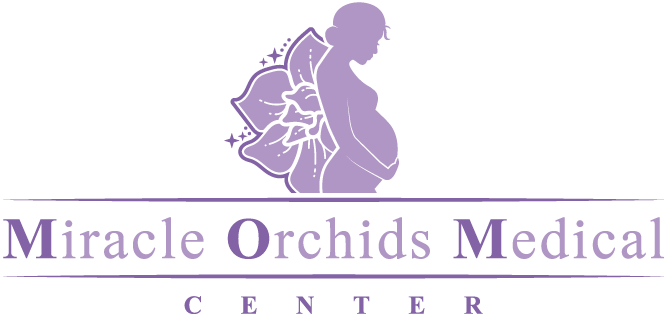Cervical cancer is a deadly disease that happens when cells of the cervix begin to grow abnormally. It is usually caused by certain types of HPV, a sexually transmitted virus.
Our goal is to help you prevent it or discover it in the early stages when it can be treated.
Some of the early signs of this cancer include:
- Unusual spotting or bleeding between periods or after menopause
- Persistent pain in the pelvic area or lower back
- Longer or heavier periods
- Increased vaginal discharge
- Pain or bleeding with intercourse
If you are experiencing these symptoms, please contact us as soon as possible to schedule an appointment.
Your best line of defense in protecting yourself from cervical cancer is the HPV vaccine, which is available for men and women between the ages of 9 and 45. We encourage you to learn if this is an option for you and your children as it can truly save lives.
It is also important to stay current with annual women’s wellness exams, pap smears, and HPV screening. These screenings can catch abnormal cells early when treatment is simpler and more effective.
Other ways to protect yourself are to:
- Use condoms – they offer a lot of protection but you can still contract HPV through skin to skin contact in other areas
- Stop smoking
- Limit your number of sexual partners
If you are due or overdue for your annual preventive screenings or have concerns about HPV or cervical cancer, please give us a call.
Miracle Orchids Medical Center – Fountain Valley, CA – (714) 486-1228
We encourage you to come in for your first prenatal visit as
soon as you find out you are pregnant.
Your baby is already developing and early prenatal care can decrease the risk of complications and help ensure it’s health. We will also support you by answering questions, providing reassurance, and guiding you through the steps that will protect the health of both you and your little one.
Some of the things we may recommend include:
Prenatal Vitamins – These vitamins are designed specifically for the health of babies and mom’s to be. For example, they include folic acid that can help prevent the development of brain and spinal cord defects. Your body will also be changing and have different needs that will be supported by the specific contents of prenatal vitamins.
Healthy Diet – It is important that you eat well and drink plenty of water during your pregnancy. Your diet should include protein, plenty of fresh vegetables, and foods rich in iron and calcium. We will provide guidance and support you in eating the best you can during this special time.
Immunizations – We may recommend that you and your partner get flu shots to prevent your getting sick during pregnancy. Tdap vaccines are also commonly recommended. They prevent whooping cough, tetanus, and diphtheria and can continue to protect your baby in her weeks after birth.
Prenatal Appointments as Advised – It is important to stay consistent with your recommended prenatal doctor visits. At each appointment we will ask for a urine sample, check your weight and belly measurements to assess your baby’s growth, and listen to their heartbeat. Most “mom’s to be” say listening to the heartbeat is their favorite thing.
Being committed to your prenatal care is the best way to
ensure that you and your baby stay healthy.
We will help you every step of the way.
Dr. Krystal H. Pham Miracle Orchids Medical Center (714) 486-1228
Most of us have had our lives touched by breast cancer in some way. We may have lost a loved one, know someone in treatment, or experienced it ourselves. Hopefully, we have some survivor stories to tell.
One in eight women will be diagnosed with breast cancer in her lifetime. Your risk level depends on several factors, some preventable and some not. Sometimes it feels like the lottery. Any one of us could be next.
(more…)
Providing quality nutrition for your baby during pregnancy can help ensure it’s health, as well as your own. The following steps will help you make sure that both you and your little one are getting the nutrition you need.
Eat a Healthy Diet
Proper pregnancy nutrition includes eating lean protein, a wide variety of vegetables, and whole grains. Foods rich in iron and calcium like leafy greens, milk, cheese, fish, and lean meats are also beneficial.
Nutrition during pregnancy is also about the foods you will want to avoid. Raw or under-cooked foods like meats, fish, eggs, and sprouts can be risky, as well as unpasteurized milk. Produce should be washed carefully.
Highly processed snacks, sugar, and extra salt are generally unhealthy while other foods like organ meats, caffeine, and high-mercury fish have specific components that may harm your baby.
Stay Hydrated
You will need to drink more water while pregnant. The extra water will help your baby form, create amniotic fluid, carry nutrients, and flush out waste and toxins.
It is generally recommended that you consume 8-12 cups of fluid a day during pregnancy. Milk, juice, sparkling water, and herbal teas all count as fluid or water intake. If you find drinking plain water boring, mix it with fruit or other flavors, just avoid caffeine, alcohol, or sugary drinks.
Take Prenatal Vitamins Daily
We will recommend specific vitamins for you when you come in for your first prenatal visit. They are designed to support your baby’s development and keep you healthy.
For example, they provide additional folic acid which can help prevent brain and spinal cord defects. Prenatal vitamins are based on current science and it is important you are consistent with taking them every day.
When you come in for your prenatal care visits we will give you more information and support you in providing optimal nutrition during pregnancy for you and your baby.
Prenatal appointments should start as soon as you find out you are pregnant. If you don’t already have a doctor you love, give us a call.
We would love to be a part of your pregnancy and delivery journey.
Dr. Krystal Pham Miracle Orchids Medical Center (714) 486-1228
HPV or human papillomavirus is a sexually transmitted infection that can lead to 6 different types of cancer and genital warts. It will infect 80% of us during our lifetimes and 14 million teens and adults are diagnosed with it each year.
If you have been sexually active or plan to be in the future, you are at risk.
For women, the biggest concern is cervical cancer. Nine out of 10 cases of this type of cancer start with an HPV infection. Cancers of the throat and sexual organs of both men and women are commonly associated with HPV, too.
Here at Miracle Orchids Medical Center we take your sexual health and cancer risk seriously. For many of our patients we recommend a vaccine that can prevent HPV and the associated risks.
Gardasil 9 is an FDA approved HPV vaccine for people from ages 9 to 45. Ideally, it will be given before children are sexually active, usually at the ages of 11-12, but can be used for adults too. It cannot cure an existing infection, but can prevent future infections of other cancer causing strains of the disease. It may also prevent sexual partners from spreading the virus to each other.
In the years since these vaccines have been recommended there have been dramatic decreases in HPV cases and cervical cancers in women. The vaccinations are definitely making a difference and saving lives.
When you come in for a consultation, our goal will be to support you in feeling empowered in maintaining your health and enjoying the gifts of being a woman through all phases of your life.
To schedule a consultation call (714) 486-1228 or contact us here.
Miracle Orchids Medical Center – Fountain Valley CA
Prenatal care is the treatment of a woman and her unborn child during pregnancy. It is never too early to begin prenatal care and set the foundation for a healthy pregnancy. From the beginning of your first trimester until the birth of your baby, your OB-GYN is your partner for health and wellness. You should schedule your first obstetric appointment as soon as you discover that you have become pregnant. Your obstetrician will confirm your pregnancy and depending on whether your pregnancy is considered high risk, may ask you to return for prenatal appointments monthly, bimonthly, or according to a schedule designed to offer you the healthiest pregnancy possible.
Did you know…
that mothers who do not get prenatal care have three times as many low birth weight babies as women who do seek prenatal treatment? Furthermore, the U.S. Department of Health and Human Services reports that fetus and infant mortality is five times higher among women who do not get prenatal care.
Frequently Asked Questions
If I feel healthy. Do I need prenatal care?
Yes. Prenatal care is about more than your health – it’s about your baby’s health too! Throughout your pregnancy, your obstetrician will routinely screen you for diseases and conditions that could threaten your health or the health of your baby. These screenings begin in the first trimester and continue up until birth, so make an appointment to see your obstetrician as soon as you become pregnant.
What should I expect at my prenatal care visits?
Your obstetrician will likely adhere to the prenatal care guidelines established by the American College of Obstetrics and Gynecology. Your first visit may be one of your longest though you will visit your obstetrician multiple times over the course of your pregnancy. Your first visit will consist of a review of your health history, a physical examination, blood type and Rh testing, HIV screening, and a host of other lab tests. You may also need an updated pap smear and immunizations to ensure a healthy pregnancy. Finally, your obstetrician will offer tips and advice for a healthy pregnancy and schedule your next visit – usually during the first part of your second trimester. Future prenatal visits will consist of weight measurement, fundal height measurements, and blood pressure screenings, as well as urine tests, sonograms and additional lab testing as needed.
Are there any instructions I need to follow between prenatal care visits to ensure a healthy pregnancy?
If you are pregnant or planning to become pregnant, talk with your OB-GYN about steps you should be taking to protect the health of you and your baby. Examples include:
- Taking a prenatal vitamin
- Avoiding foods high in mercury
- Getting a flu shot
- Avoiding hot tubs or saunas
- Eating a nutritious diet
- Avoiding alcohol and excessive caffeine consumption
- Maintaining a healthy weight
- Optimizing your sleep position
- Avoiding contact with kitty litter
- Taking a childbirth education class
Women who take control of their health empower themselves to live longer, disease-free lives. A lifetime of good health starts with prevention, including annual wellness exams and screenings. A women’s health doctor can be your greatest partner in prevention, offering you advice for healthy living and providing important screenings designed to identify complications and illnesses during their earliest stages. From adolescence to post-menopause, a woman’s health demands care and attention at all stages of life.
Did you know…
that female health screenings have significantly reduced the number of deaths from certain diseases, such as cervical cancer? Unfortunately, not all women adhere to guidelines for health screenings such as mammograms and pap smears. The Centers for Disease Control reports that only 67 percent of American women over age 40 have had a mammogram to screen for breast cancer in the last 2 years, and about 73 percent over age 18 have had a pap smear in the past 3 years. But periodic screening can identify cancer at its earliest stages, vastly improving long-term prognosis and 5-year survival rates.
Frequently Asked Questions
I consider myself healthy. Should I be seeing a women’s health doctor?
Yes. Women’s healthcare is for all females of reproductive age or older. If you are healthy and symptom-free, your doctor can help keep you that way with periodic screenings, immunizations, and advice for healthy living. Keep in mind that sometimes underlying health problems present no symptoms at all; so it is important to see your practitioner each year for a routine wellness exam.
What should I expect during a visit to a women’s health doctor?
The components of your visit will vary according to your age. Young women, for example, require annual pap smears, pelvic exams, breast exams, and possible immunization against HPV. Ladies over age 25 may begin to get pap smears less frequently, although they will begin mammogram screenings by age 40. Your doctor will also speak with you about your health concerns, risk for certain diseases, and contraception needs if applicable.
Will I need to follow any special instructions between visits?
Possibly. Every woman is unique, so only your doctor can tell you whether you need to make changes to your lifestyle or eating habits following your appointment.
Annual gynecological exams are preventative tools available to help women identify and treat complications that pose a threat to their health as early as possible. By getting annual exams, women can also learn to maintain a healthy lifestyle and adopt habits that facilitate long-term health. Exams for women often screen for sexually transmitted diseases and include the administration of vaccinations for common diseases like HPV, hepatitis, and the flu. As women age, annual exams may also include discussions about using hormone supplementation to manage the symptoms of, as well as the use of supplements to prevent osteoporosis.
Did you know…
that your annual gynecological exam is an excellent opportunity to discuss family planning with your doctor? Your gynecologist can offer fertility counseling, as well as education about ovulation and improving your chances of conception. If you are not yet ready to start a family or are finished having children, you can speak with your gynecologist about your options for birth control.
Frequently Asked Questions
Should I get an annual gynecological exam?
The American College of Obstetricians and Gynecologists recommends that you begin getting breast health exams at age 19 and annual pelvic exams with pap smears at age 21. Once your reach age 30, you will still need breast and pelvic exams each year but may space pap smears every two years so long as all previous pap smears have been normal.
What should I expect during my annual exam?
Your annual exam will begin with an assessment of your weight and blood pressure, as well as a discussion of any symptoms or health changes you may have experienced since your last visit. Your gynecologist will palpate your breasts to check for lumps or unusual changes to breast tissue. The pelvic exam will also include a manual and visual examination of the cervix, uterus, and vagina. If you are getting a pap test, your doctor will swab your cervix to check for the presence of abnormal cells.
Will I need to follow any special instructions after my exam is complete?
Your gynecologist will advise you on any changes you may need to make following your exam. For example, you may be advised to modify your diet, exercise habits or the types of supplements you should be taking each day.
According to the American Pregnancy Association, more than 29 percent of women in the U.S give birth via caesarean section (c-section). C-sections are used to deliver a baby surgically, rather than through the birth canal. Most c-sections are reserved for emergencies or women who have either developed complications during pregnancy or are at high-risk for developing them during birth. Since few women plan to have their babies through c-section, it is important that all pregnant women educate themselves on the procedure – even those who have plans for a vaginal birth. For a positive birth experience, the American Pregnancy Association recommends having a flexible birth plan that makes room for a possible c-section birth.
Did you know…
that there are steps you can take to reduce your risk of requiring a caesarean section birth? Though there is no way to completely eliminate the possibility of surgical birth, you can lower your risk by finding ways of coping with pain aside from epidural analgesia. You are also less likely to have a c-section if you are medically able to avoid labor induction and labor at home until you are at least dilated to 3 centimeters.
Frequently Asked Questions
Will I need a caesarean section when I have my baby?
Only your obstetrician can tell you if you will be having a c-section birth. However, many c-sections are performed as last minute decisions caused by critical complications, so it is impossible to know for sure if you will have a c-section unless your obstetrician schedules it ahead of time. Some reasons for c-sections include conditions like placenta previa, breech presentation, uterine rupture, fetal distress, preeclampsia, multiple births, and gestational diabetes. Your doctor may also wish to schedule a c-section if you had a previous caesarean birth, although many women are eligible for VBACs, or vaginal births after caesarean.
What should I expect during a caesarean birth?
Before your child is delivered, your obstetrician will administer anesthetic to prevent you from feeling pain during the surgery. Unless you have an emergency c-section, you will likely be awake for your delivery, but feel no pain. Your doctor will make an incision through your abdominal wall, as well as your uterine wall either vertically or horizontally. Your baby will be delivered after the amniotic fluid has been suctioned from your uterus – usually within 5 to 15 minutes of beginning the c-section procedure. If you are awake, you will see your baby before he or she is placed in the care of a nurse. You’ll feel pressure as your doctor begins delivering the placenta and repairing your incisions.
Will I need to follow any special care instructions after my c-section birth?
You’ll spend more time in the hospital after a c-section to ensure you are making a healthy recovery. Within 24 hours, you will need to get up to walk to the bathroom. Before you are discharged, your staples may be removed. You will need to avoid heavy lifting and housework during the first few days and weeks following surgery and ensure that you are getting plenty of fluids. Over the course of six to eight weeks, you will experience a heavy flow of blood and fluids from your uterus. Contact your doctor immediately if you begin running a fever or notice signs of infection near your surgical wound. Finally, be sure to follow all post-partum guidelines given to you by your obstetrician, such as avoiding sex and baths until your incision has healed.
Gestational diabetes is diabetes that occurs and is diagnosed during pregnancy. The disease can be caused by a number of factors, including genetics and lifestyle habits. A woman with gestational diabetes does not produce enough of her own insulin during pregnancy, causing erratic blood sugar levels. Gestational diabetes puts newborns at risk for respiratory complications, and it can also cause babies to be born at high birth weights.
Did you know…
that gestational diabetes was once believed to only affect 1 in 20 pregnancies? Unfortunately, as many as 1 in 5 pregnancies today result in gestational diabetes. Women who have had gestational diabetes in prior pregnancies have a 6 in 10 chance of developing the disease again. They also have a 1 in 2 chance of developing Type 2 diabetes within a decade of being diagnosed with gestational diabetes.
Frequently Asked Questions
Could I have gestational diabetes?
Anyone is at risk for developing gestational diabetes, and screening at approximately 20 weeks gestation is standard for prenatal care. However, you are at an increased risk for gestational diabetes if you are overweight, have a family history of diabetes, have high blood pressure, or are over age 25.
If I have gestational diabetes, how will it affect my pregnancy?
You can most likely manage gestational diabetes with dietary modifications. However, your obstetrician may also recommend glucose testing and insulin injections for the duration of your pregnancy.
Is there anything I can do to reduce my risk of getting gestational diabetes?
Yes. Although there is no way to ensure you will not get gestational diabetes, you may be able to lower your risk of developing the disease by maintaining a healthy weight prior to and during pregnancy. Eat a diet low in sugar and exercise moderately before and throughout your pregnancy according to your obstetrician’s recommendations.






